I. Postulancy
Although religious life, properly speaking, begins with the novitiate, a fitting preparation for it requires an earlier stage of formation which we call postulancy.
As such postulants are gradually introduced to religious life in the Teresian Carmel. They are given classes, with obvious particular emphasis on the Carmelite Tradition and it’s place within the history of religious life. They are introduced to both the liturgical prayer (liturgy of the hours) and private prayer (mental prayer) that make up so much of the life of a friar.
Postulants have a director that is assigned to them in order to help them in their process of integration.
Postulancy lasts for twelve months.
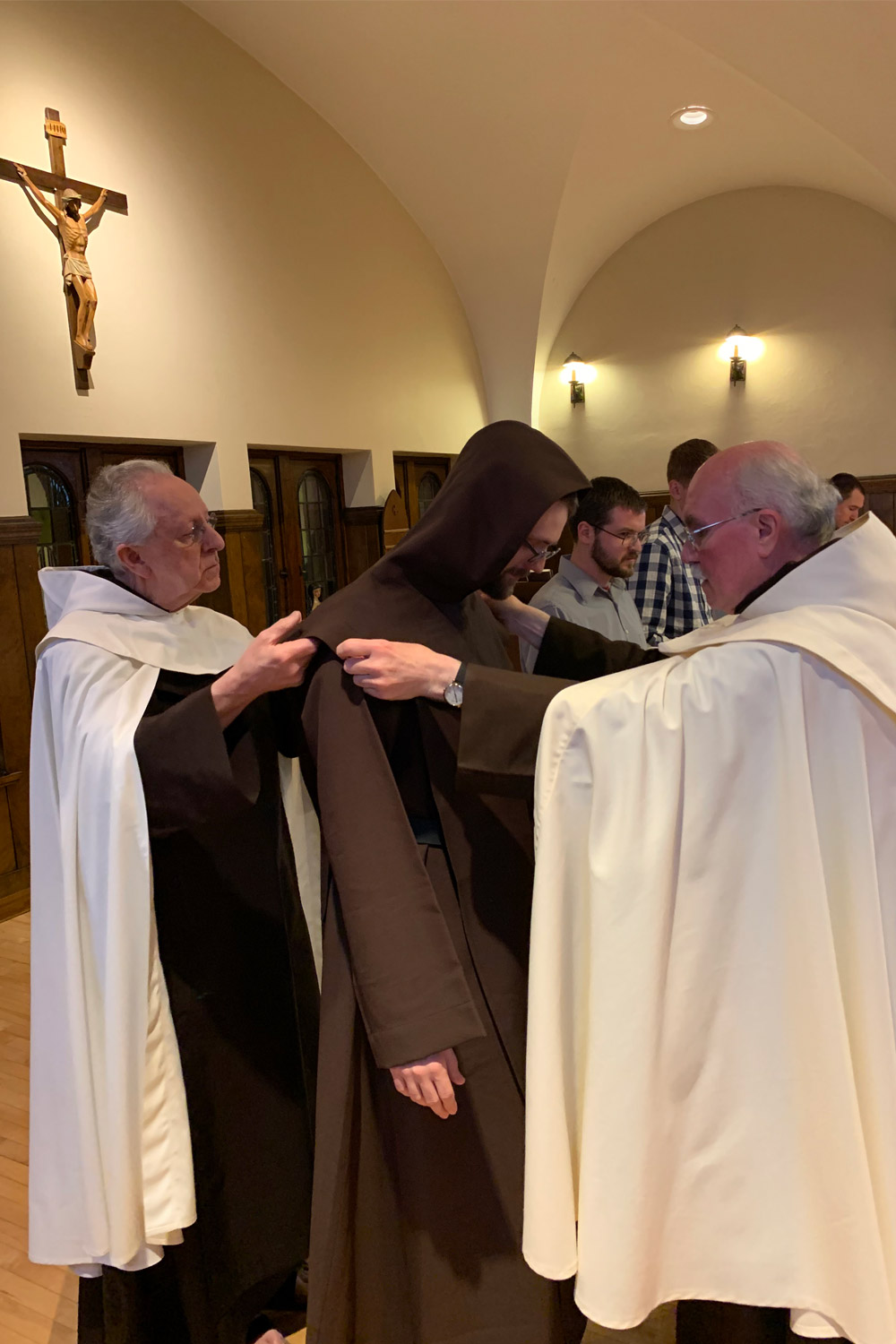
^ A new novice is clothed in his Discalced Carmelite habit.
II. Novitiate
The basic purpose of the novitiate, by which a novice begins his life in the Order, is to offer him a genuine experience of what it means to be consecrated to God in the Teresian Carmel. This reality is marked by his reception of the habit and name and title.
It is an intense year when a man receives formation in the contemplative, fraternal and apostolic aspects that comprise the rich tradition that is our spirituality and way of life.
Novices receive classes to help immerse them in our spiritual patrimony and assist them in their transition to full Carmelite life.
Most of all the novitiate is ordered to be an intimate, profound, and life changing experience of God.
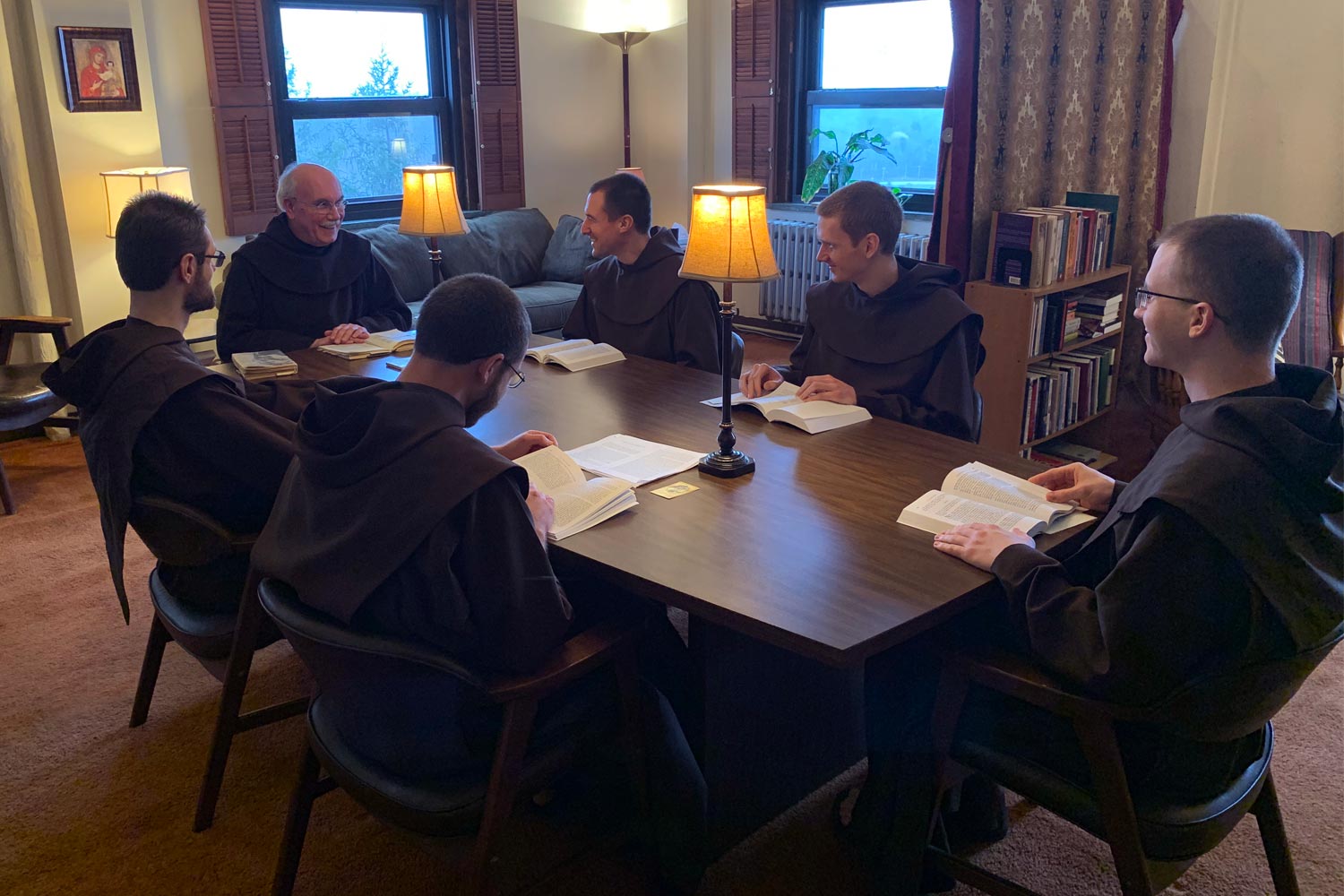
^ Novices in class with their Novice Master.
The novitiate is a year of grace and an essential foundation for the whole life of a religious. As such novices are assigned a novice master who is both knowledgeable and experienced in the spiritual life and especially in the life of Carmel.
The novitiate lasts a canonical year.
III. Temporary Vows
If discernment and evaluations are favorable, novices at the end of their novitiate are permitted to profess temporary vows of poverty, chastity and obedience.
The time of temporary vows is one of continued formation in the Carmelite life and formal study.
In this stage vows are renewed yearly, as vocational discernment and evaluation continue, for a period of three to five years.
The time of temporary vows is when the friar tests his vocation by living as fully as he can the Carmelite life as a vowed member of the community. He is assisted in these efforts by a director of formation.
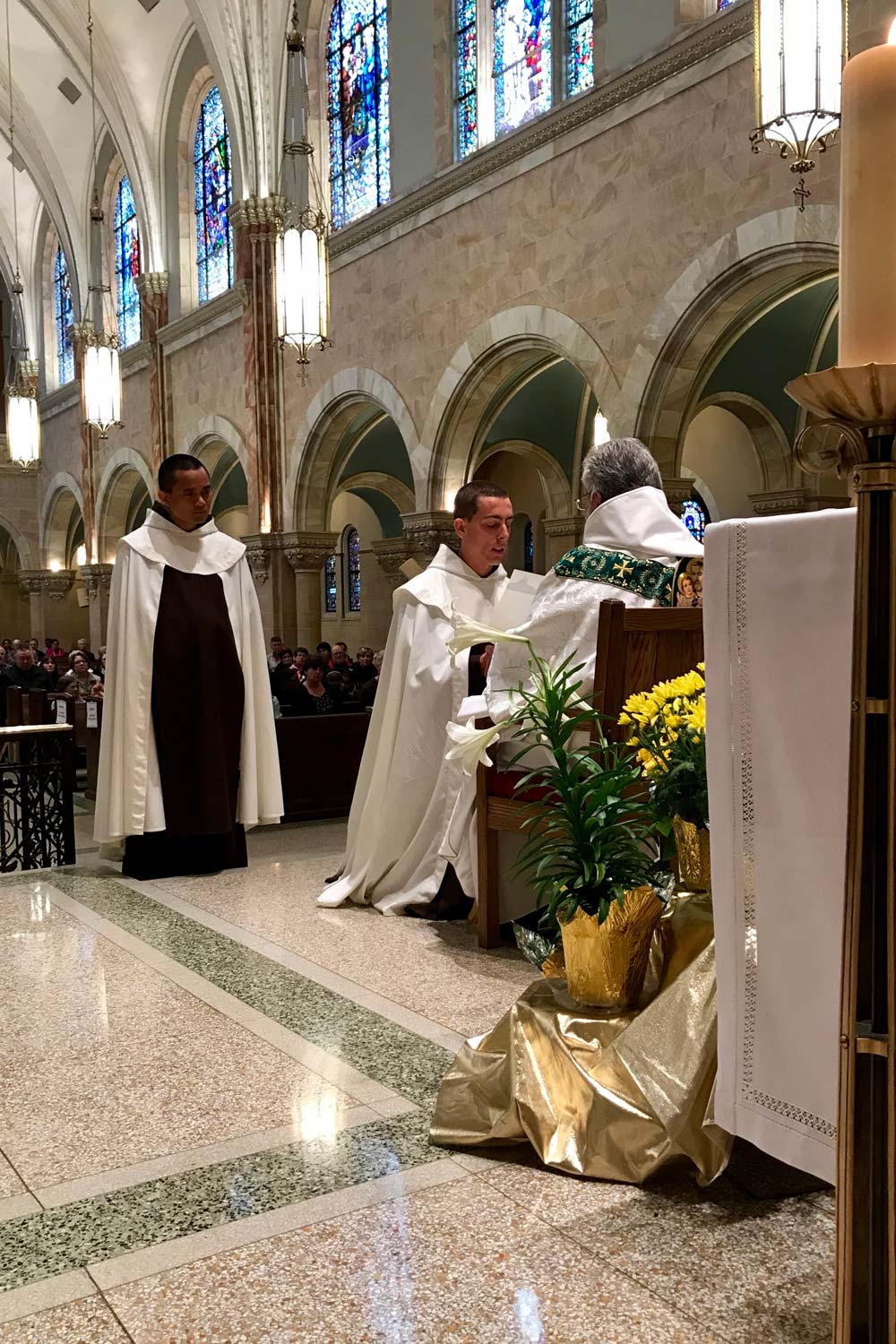
^ Brothers making their temporary profession of vows at Holy Hill.
IV. Studies
St. Teresa of Jesus always admired religious who were both spiritual and learned. As such the friars of her reform strive to excel in each of these areas.
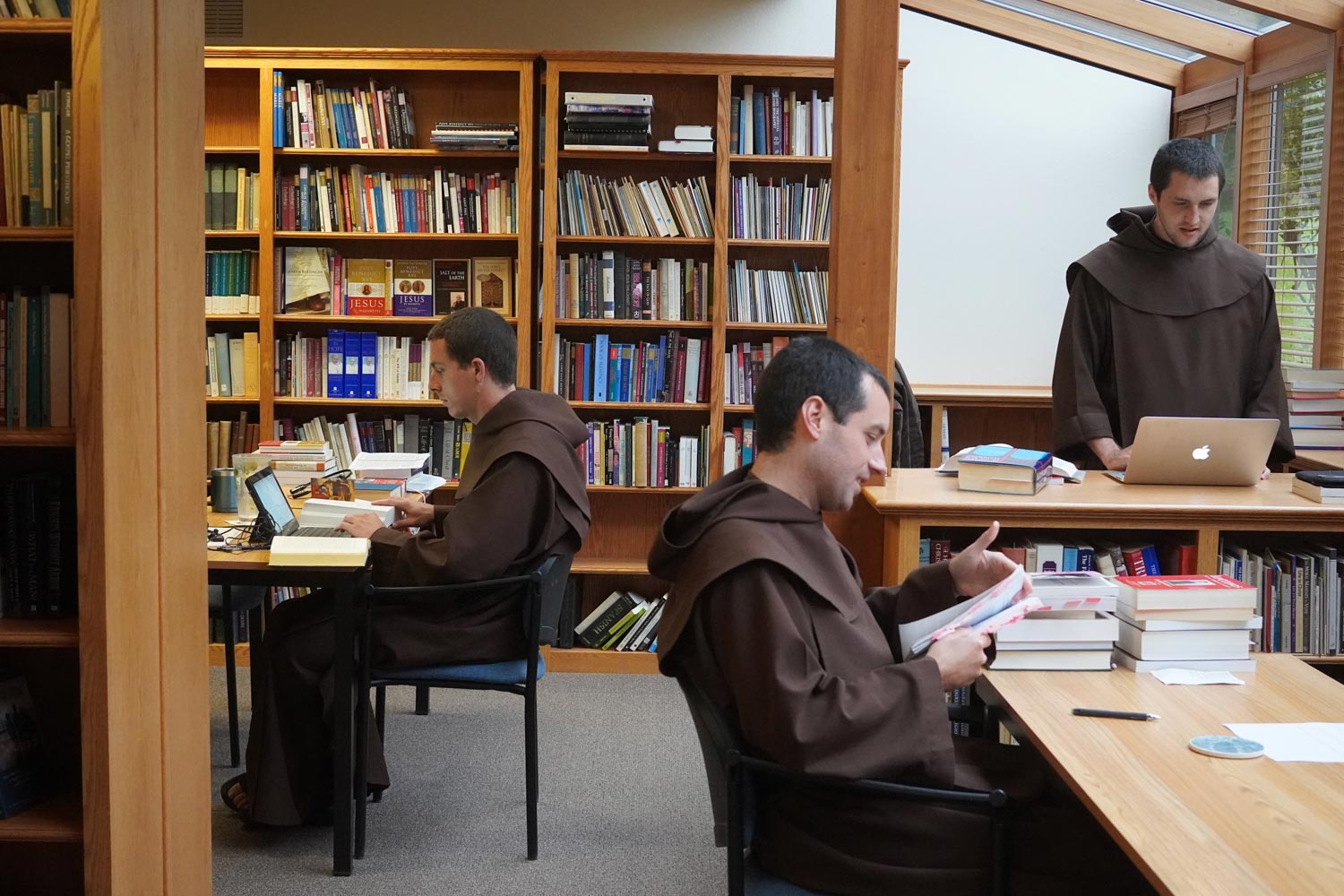
^ Hitting the Books at the Student House at Mount Angel, Oregon.
V. Solemn Profession
After the years of temporary vows, a friar can petition to make their solemn profession of vows.
If accepted he will spend about three months in preparation, a time known as the second novitiate, often including a retreat at our hermit community in Hinton WV.
With solemn vows, a friar becomes a full member of the Province with all the rights and responsibilities provided by Canon Law and our Constitutions.
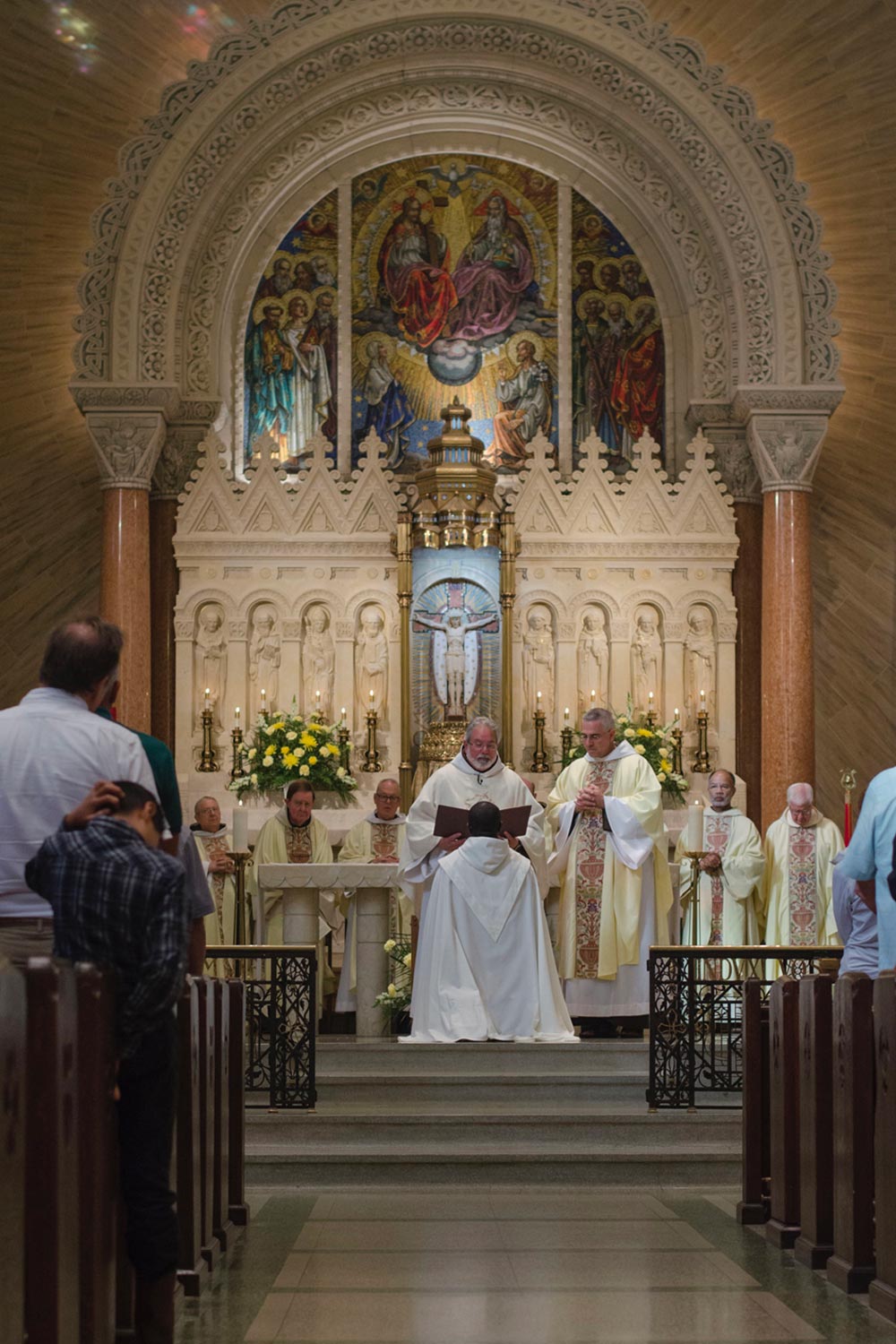
^ Brothers making their solemn profession at Holy Hill.
VI. Ordination
Religious in the Teresian Carmel can only be ordained as transitional deacons after they have made their solemn profession.
Deacons usually spend a year serving in one of our parishes either at Holy Hill: the Basilica of the National Shrine of Mary Help of Christians or St. Florian’s parish in Milwaukee, WI prior to their ordination to the priesthood.
Newly ordained friars receive their conventuality (the monastery they will live in) and ministry assignments from the provincial.
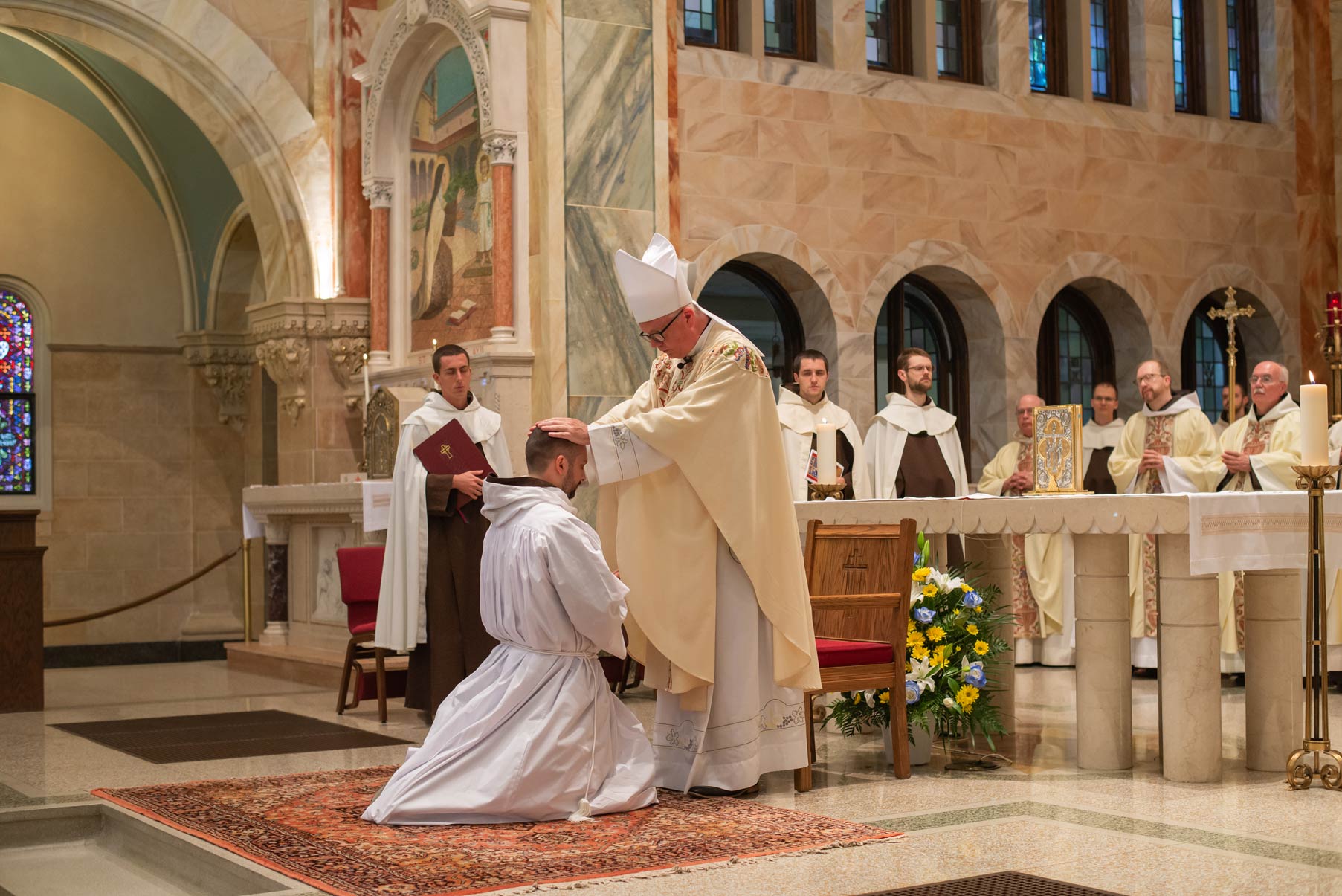
^ The ordination of one of our brothers.

